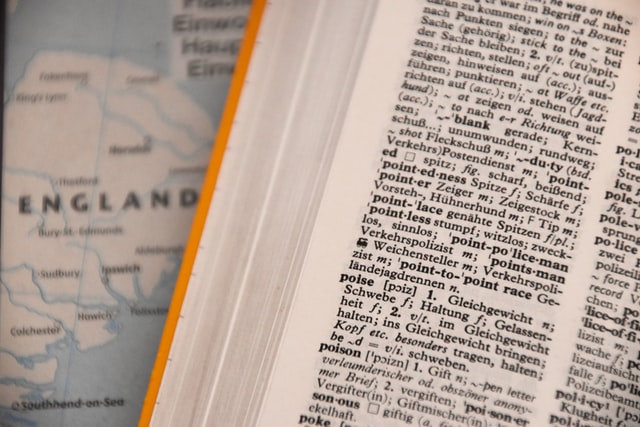German ‘Language Police’ And Gender Neutrality Posted by Constanze on Feb 9, 2022 in Language
Guten Tag! Recently I wrote about the German Unwort des Jahres (‘Non-word of the year’) 2021, which you can read about here. I mentioned in that post that the runner-up was die Sprachpolizei, which literally means ‘language police’. This word was used in 2021 to defame those who were trying to make the German language more gender-neutral. Today we’re going to delve a little deeper into that subject.
The question of whether or not the German language is sexistisch (sexist) is not a new one. But over the past few years especially, the conversations around gender-appropriate language (Geschlechtergerechte Sprache) have accelerated, with more and more considerations being made in language for people who identify as non-binary (nichtbinär). German is no exception.
Related vocabulary for this subject:
Die genderinklusive Sprache – gender-inclusive languge
weiblich / männlich / nichtbinär – female/male/non-binary
die Nichtbinäre Geschlechtsidentität – non-binary gender identity
nicht ausschließlich als männlich oder weiblich identifizieren – to not identify exclusively as male or female
das drittes Geschlecht – the third gender
die Geschlechtsneutralität – gender neutrality
die Pronomen – pronouns
What’s the issue with the German language?
The main perceived problem with the German language as it stands is the distinct separation between male and female roles. For example, in English, a doctor is a doctor, whether they are weiblich (female), männlich (male), or nichtbinär (non-binary). In German, however, a doctor is either der Arzt (a male doctor) or die Ärztin (a female doctor). Furthermore, if a group of doctors is being spoken about, the default plural is always the masculine version (die Ärzte). This is the case even if there are 10 female doctors and 1 male doctor; the feminine is only used if there are solely female doctors in the group. Campaigners for change argue this discriminates against both women and non-binary people, and think the language should be updated to be more inclusive. One of the things introduced to do just that was the Gendersternchen, but many argue that more needs to be done.
Die Sprachpolizei: ‘Language Police’
It’s safe to say there has been significant change over the past few years alone- and with change comes resistance! Critics called those trying to create change in 2021 ‘Sprachpolizei’ (‘language police’). Amongst those against the idea of making the German language more gender-neutral are die Gesellschaft für deutsche Sprache (German Language Society), politician Alexander Krauß from the CDU (who argues that this change will mean reading novels won’t be fun any more), and the far-right party AfD (Alternative für Deutschland).
Marlies Krämer sues her bank!
Some take issue with the masculine being the dominant form in the German language, and want that to change: Take Marlies Krämer, a woman who took her bank to court when they refused to address her as Kundin (the female version of ‘customer’), instead calling her by the generic male term, Kunde. She argued she had a right to be recognised as a woman in speech and writing. The court, however, rejected her lawsuit, stating that the generic male form could be used to address women, and that the bank had not violated any gender equality laws in using it.
One thing is for sure: If a word like ‘Sprachpolizei’ is runner-up for the Unwort des Jahres, the people pushing for change in the German language have definitely made an impact.
If you’d like to read more on this interesting subject, check out these blog posts below:
Gender-Neutral German: Das Gendersternchen
Is The German Language Sexist?
How do you pronounce the gender-neutral German Gendersternchen?

Build vocabulary, practice pronunciation, and more with Transparent Language Online. Available anytime, anywhere, on any device.






Comments:
Otto Parts:
Wow, could you get more crazy politically correct than this article?! Wahnsinn!